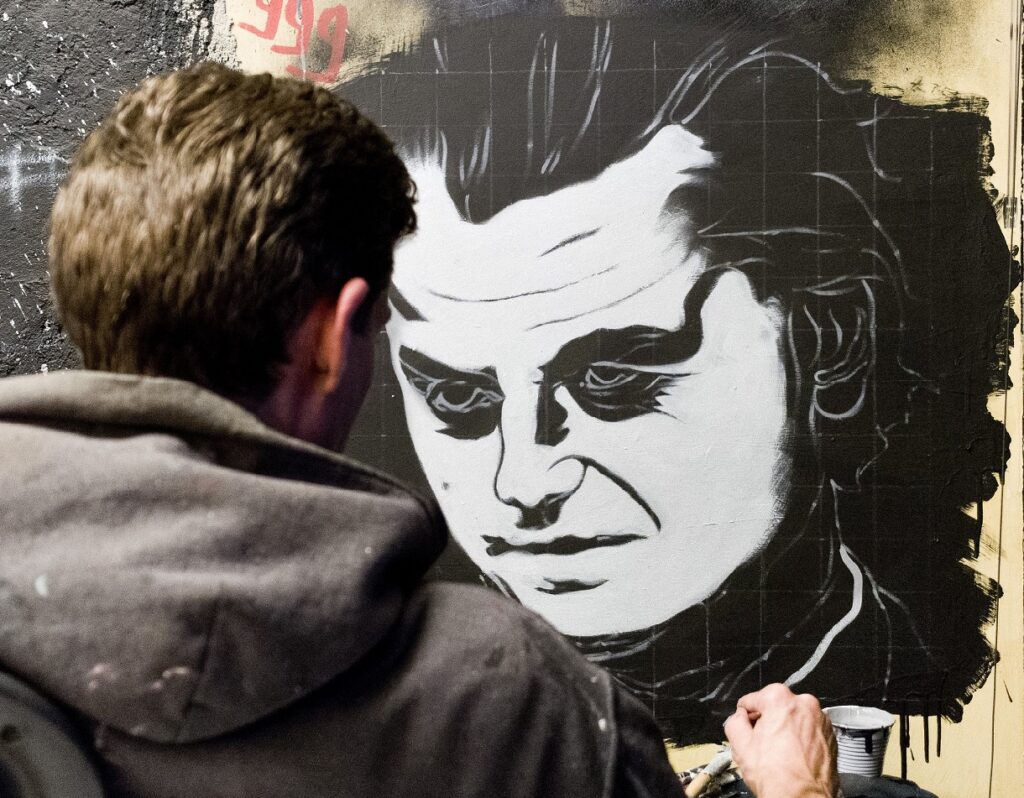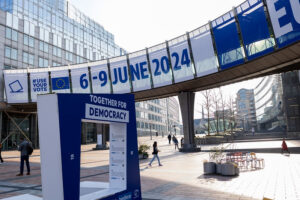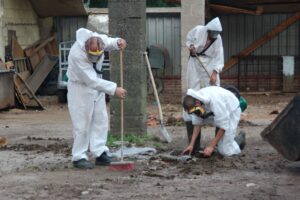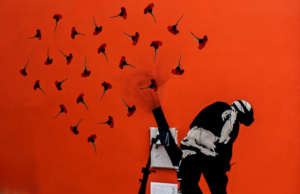Seismic shifts have taken place in Dutch politics following the general election on 22 November. An analysis of this complex landscape reveals a significant victory for the radical right, led by Geert Wilders’ Party for Freedom (PVV), shaping the political direction and raising questions about the country’s future in the European Union.
The background: the fourth Rutte cabinet (2021-2023)
Elections were set after the fourth Rutte cabinet (s. January 2022) resigned in early July 2023 due to differences over immigration. This cabinet, a coalition of PM Mark Rutte’s right-wing VVD, two Christian parties (CDA, ChristenUnie) and the liberal-progressive D66 had been plagued from the outset by ideological and personal differences. The coalition was a continuation of the previous third Rutte cabinet, which resigned in January 2021 as a response to the parliamentary interrogation committee on childcare allowances. The committee found a culture of structural mistrust and discrimination of citizens within government agencies. This had enabled a situation in which thousands of citizens were wrongly accused of having committed benefit fraud and were forced to pay back allowances, thereby driving many into serious poverty. This issue was put on the agenda by Pieter Omtzigt (at that time an MP for the CDA) and Renske Leyten (Socialist Party); although both received praise for their role in uncovering the ‘childcare allowance affair’, their respective political parties did not gain from this important achievement in 2021. Omtzigt, moreover, was sidelined by the CDA after vying for party leadership. In 2021, the VVD, which had been continuously in government as the biggest party since 2010, again won the elections – even gaining a seat (going from 33 to 34 out of 150). D66 came in second with 24 seats (+5), after a campaign that presented Sigrid Kaag, an experienced diplomat, as a candidate prime minister with the promise of ‘new leadership’. CDA (-4) lost in the 2021 elections, but nevertheless decided to re-join the new government. CU (again 5 seats) likewise did so.
The coalition formation of 2021-2022 was the longest in Dutch history so far, lasting 299 days. It was marred with difficulties from the start. Most noticeably, the ‘scouts’ appointed by VVD and D66 to oversee initial coalition talks were forced to resign after it became public that prospective coalition parties had discussed how to sideline Pieter Omtzigt out of politics (‘functie elders’). Debates around this issue showed the mistrust between parliament and (outgoing) government officials. MPs complained they were often informed of important matters too late, or not at all, hindering parliament’s capability of controlling the government. The affair also dented Rutte’s image as someone to whom somehow scandals never stick (‘Teflon-Mark’). Instead, his ability to talk his way out of things was now regarded with increasing irritation, as a rhetorical spoof, especially after he claimed to have “no active memory” of conversations about Omtzigt’s position.
The formation period did not bode well for Rutte’s fourth consecutive government. Right from the start, none of the involved parties seemed enthusiastic about the coalition program. D66’s electoral success meant that VVD had to make more compromises. Nevertheless, D66 did not manage to realise the ‘new leadership’ it had campaigned for – and that had attracted many voters from the left that strategically (but to no avail) voted to see Rutte go. CU struggled with several right-wing measures that bore the VVD’s signature, while also opposing some progressive (medical-ethical) proposals that came from D66. CDA, meanwhile, sunk deeper into crisis. In the wake of Omtzigt affair, Omtzigt decided to leave the CDA and set up his own conservative party that focuses on good governance – and which immediately became much more popular than the CDA itself. In the 2023 elections, CDA was reduced to 5 seats (-10), whereas Omtzigt’s newly established New Sociaal Contract (New Social Contract; NSC) entered parliament with 20 MPs.
From the start, immigration became a debated issue within the coalition. A lack of shelter places at asylum centers led to chaotic situations in which persons were forced to sleep outside of the center in Ter Apel in August 2022, until emergency shelters were found. This crisis fed the idea that massive groups of asylum seekers entered the Netherlands; many of whom coming from safe countries, without any chance of obtaining a residence permit. In reality, the lack of shelter places was largely the result of consecutive governments’ decision to decrease beds whenever possible, without planning for the foreseeable arrival of larger groups of asylum seekers ahead. Once new groups did arrive, authorities responded with emergency measures – calling upon municipalities to absorb more refugees and people with residence permits. Many municipalities have however refused to create shelter places – thus leading to an ongoing lack of place for asylum seekers, and feeding into a continuous atmosphere of crisis surrounding the issue of housing for refugees. From 2022, people from Ukraine did form an extra and unexpected group of migrants – however, with the right of temporary residence. Obviously, this group also needs housing. In a bid to solve the problem, VVD secretary of state Van den Burg opted to force municipalities to accept responsibility – only to find this proposal criticised heavily by the VVD faction in parliament. Ultimately, the VVD blew up the government, citing the need to do more to curb migration as the central reason. This was done after the party failed to convince coalition partners to accept legislation that would end the right of family members to join their next of kin with a recognised residential status – a proposal that was not acceptable to CU and D66 (and in breach with international agreements). This made immigration one of the central issues in the election campaign, together with livelihood security.
The elections
Although the left campaigned on the issue of livelihood security for many years, none of the left parties managed to establish itself as the owner of this issue. Rather, livelihood issues became part of the ideological left-right divide that has been growing in the Netherlands ever since the advent of Pim Fortuyn in 2002. Since then, many new parties entered the Dutch parliament – some of them on the left (Animal Party (PvdD) – s. 2006; Bij1 – 2021), but primarily on the right (Freedom Party (PVV) – s. 2006, Forum voor Democratie (FvD) – s. 2017; JA21 – s. 2021, BoerBurgerBeweging (BBB) – s. 2021), as well as some parties that cater to immigrants (Denk – s. 2017) or the elderly (50PLUS – s. 2012) specifically, and the European party Volt (s. 2021). Housing shortages have been framed as being related to both immigrant policies (‘taking our homes’) as well as environmental policies (nitrogen emission rules for building). Nitrogen emission rules moreover led to the politicisation of farmers and the creation of the ‘Farmer Citizen Movement’ (BoerBurgerBeweging; BBB); a right-wing party that advocates for the rights of farmers and rural areas more broadly. The general feeling was that the government had lost sight of the people impacted by its policies – such as in the childcare allowance affair, but also in response to citizens affected by earthquakes that are the result of gas extraction in the province of Groningen. This benefited populist parties, and further fed into the sensed rift between center and periphery – or cities primarily in the west of the country versus ‘the rest’ of the Netherlands.
Support for populist and radical right parties has thus been growing in the Netherlands for many years. At the same time, support for the left has declined. By 2021, PvdA, GroenLinks, SP, PvdD and Bij1 combined received 33 seats. In 2023, PvdA and GroenLinks (then 17 seats together) merged into a single party, with the intention of combining the left electorate into a large party that could win the elections. Frans Timmermans left his position as EU climate commissioner to become the party’s leader, with the intention of becoming Prime Minister. For a while, this indeed seemed a possibility. However, it only seemed to be so because the right vote happened to be split over many parties. This changed once it became clear that Wilders’ PVV had a real chance of winning the elections. In response, Wilders in his campaign took on a new, more moderate posture during the campaign, drawing a large part of the erstwhile divided radical right vote to the PVV.
For many years, the radical right anti-immigrant and anti-Islam party PVV had successfully been barred from any chance of governing. This happened mainly on the instigation of Rutte’s VVD, after his first cabinet (2010-2012) had to resign after the PVV withdrew its support for the minority government. In response, Rutte made it clear that he no longer considered the PVV a viable governing partner. Likewise, political parties on the left and center were unwilling to consider a government with Wilders, due to ideological differences with the PVV. Since then, a vote for the PVV on national level was regarded purely as a protest vote. This decreased Wilders’ support base, while a considerable electorate continued to look for a radical right alternative with an outlook to governing. This situation contributed to the large volatility of the increasing right electorate during past elections. In 2019, Forum voor Democratie (FvD) – then still seen as a ‘civilised alternative to the PVV’, became the largest party in provincial elections. By 2023, support for the FvD had declined; now the BBB won the provincial elections.
The 2023 national elections were a game-changer. After 13 years and four parliaments led by Rutte, the VVD campaigned with a new party leader. Dilan Yeşilgöz, minister of justice in the fourth Rutte cabinet and belonging to the VVD’s right wing, campaigned to become PM. In the campaign, she particularly focused on the issue of immigration, promising stern measures in this regard. Yeşilgöz also made clear her preference to cooperate with right-wing parties on this issue, no longer excluding the PVV as a possible coalition partner. For the first time in over ten years, this opened the prospect of a cabinet including the PVV – the party that was understood by many to own the issue of immigration. Many voters that had for four consecutive national elections strategically voted for VVD now saw a chance to vote PVV instead. Meanwhile, the increasing radicalisation of FvD (3 seats; -5) drove voters from this party to the PVV, while the weak performance of BBB frontwoman Caroline van der Plas in election debates led to a drop in support for this party. In April 2023, shortly after the sweeping victory in the provincial elections, it briefly seemed possible that the BBB would win up to 30 seats, becoming the biggest party in parliament. Yet on 22 November, BBB obtained ‘only’ 7 seats – still a tremendous win after entering parliament with 1 MP in the 2021 elections. Smaller radical right parties also saw their previous electorate opt switch to the PVV – with JA21 only winning 1 seat (2021: 3) and BVNL (2 seats after a split from FvD) leaving parliament.
In the end, the PVV won 37 seats in parliament, more than doubling in MPs (+20). GroenLinks-PvdA came in second, with 25 (+8) seats. VVD (24 seats; -10) and Omtzigt’s Nieuw Sociaal Contract (NSC; 20) followed. D66 (9; -15) and CDA (5; -10) were punished by the voters for their participation in the last government. The SP again lost the elections, now being reduced to 5 MPs (-4). PvdD (from 6 to 3) and Bij1 (from 1 to 0) likewise saw their electorate shrink. The result for the left was disappointing, yet not unexpected: combined, left parties have received the same amount of 33 seats as they did in 2021.
Although many on the left and center of the political landscape have expressed disappointment and shock about these election results, these aren’t so surprising as many seem to believe. The radical right electorate has been substantial for a long time now, and the voter potential for the PVV likewise was obvious. The Dutch party system somewhat obscured this fact, splitting the radical right electorate over so many parties that none of them became the biggest party overall. None should the election victory surprise us in the current international context. Wilders’ victory is one in an increasing list of populist and radical right – as well as pro-Russian – election victories worldwide and in Europe – with Meloni, Orban and Fico as good examples. What this means for the Netherlands’ position towards and within the European Union remains to be seen.
Reactions to the PVV victory
The PVV election program was titled ‘Dutchmen first again’ (Nederlanders weer op 1). The program advocates drastically curbing immigration, a.o. by no longer granting any asylum and by introducing work permits for Europeans. To these ends, PVV wants to opt-out of EU treaties on the issues of asylum and migration and to terminate the UN Refugee Convention. Continuing its anti-Islam stance, PVV also advocates a prohibition of Qurans, mosques and Islamic schools. The party calls for a binding referendum on a Dutch exit from the EU (‘Nexit’); until that time, the Netherlands should pay less to the EU, and guard the country’s sovereignty. Any climate measures should be reversed; and money reserved for solving climate issues should be spent otherwise. The party wants to invest in more roads, and rejects any plans intended to curb travel by plane and meat consumption. PVV also calls for ‘political neutrality’ of teachers, and for an ‘end to the indoctrination of our children’ in schools. The social-economic platform of the PVV leans to the left. It includes raising minimum wages and reducing the pension age to 65 years, as well as a reduction of social rent and the costs of health care.
The PVV victory was met with great enthusiasm among radical right voters, many of whom expressed a feeling of vindication. Wilders immediately announced his intention to become PM. While doing so, he stated his intention to be a prime minister for ‘all Dutch people’; here obviously referring to people with an immigrant background, and especially Muslims, whom he had campaigned against for so many years (most notoriously, perhaps, when he asked his party’s voters in 2014 whether they wanted ‘less or more Moroccans’ in the Netherlands, with a crowd cheering ‘less, less, less’ back to their political leader. People from Moroccan descent form a sizeable minority group in the Netherlands after many Moroccans came to the country as migrant workers from the 1960s onwards). Wilders has also indicated to put any party plans that are unconstitutional on hold. This seems to be a recognition that many of his voters hold less radical views than those expressed in the PVV program, yet it contradicts many of the PVV’s central campaign points. Although Wilders’ tone after the elections has so far been conciliatory, it also stands in sharp contrast to his political line of the past 1,5 decade. It remains to be seen whether this conciliatory stance will last once Wilders is in office.
Many on the left aren’t reassured. In an emotional speech on election night, Frans Timmermans (GroenLinks-PvdA) asked his party members to ‘hold each other’, promising that GL-PvdA would not exclude anyone. In Amsterdam, Utrecht, and Leiden, demonstrations were held in response to the PVV victory. In Amsterdam, around 40 public servants took to the streets to ‘show that they are there for everyone’.
Meanwhile, the process of government formation has seen a chaotic start: Wilders initially nominated PVV senator and long-term confidant Gom van Strien as ‘scout’ to identify intended coalition partners. However, van Strien resigned from the task within two days after it became known he had been reported for fraud and bribery by his previous employer, Utrecht University. It is feared that the situation with Van Strien might forebode more problems with PVV representatives ahead. The PVV is not a democratic party. Instead, the PVV has only one member, namely Wilders himself. This lack of party democracy means that, for more than 1,5 decades, Wilders has taken all key decisions by himself. In this, he has trusted on a small group of confidants – while also showing his mistrust of people in his inner circle on multiple occasions. The situation around Van Strien moreover shows that Wilders may not know his confidants as well as thought. This leaves open the questions how Wilders intents to recruit PVV governors, and how he sees his role as premier in a dual parliamentary system that requires him to give up his tight control over the PVV parliamentary faction.
As of 28 November, former PvdA minster and currently columnist for the right-wing newspaper De Telegraaf, Ronald Plasterk has been appointed as the new ‘coalition scout’. Plasterk, who has in the past years ideologically moved to the right, is now tasked with overseeing the formation of a government that most left voters view as a nightmare. Although exploratory coalition formation talks have only recently begun, any PVV led coalition will consist of right parties. It is also likely to include relative newcomers to the Dutch parliament: both Omtzigt (NSC) and Van der Plas (BBB) have indicated their interest in joining a governing coalition led by PVV. VVD leader Yeşilgöz has announced she is not willing to join a PVV-led government – yet polls show that a majority of VVD members and voters would not have a problem with that. Several parties including GroenLinks-PvdA and D66 have excluded the possibility of joining a coalition with the PVV. Thus, a coalition of PVV, NSC, BBB and VVD seems most likely. Yet finding common ground may still prove difficult: VVD has an economically right agenda and is in favor of climate policies, in contrast to the PVV’s agenda; NSC primarily wants to protect the constitution that many of PVV’s plans go against; and BBB focuses on the position of farmers over other priorities such as allocating space for new housing projects in rural areas, which is important to the other expected coalition partners. It now remains to be seen what government will be formed – and what this means for people in the Netherlands itself, and for the position of the Netherlands in the world.



